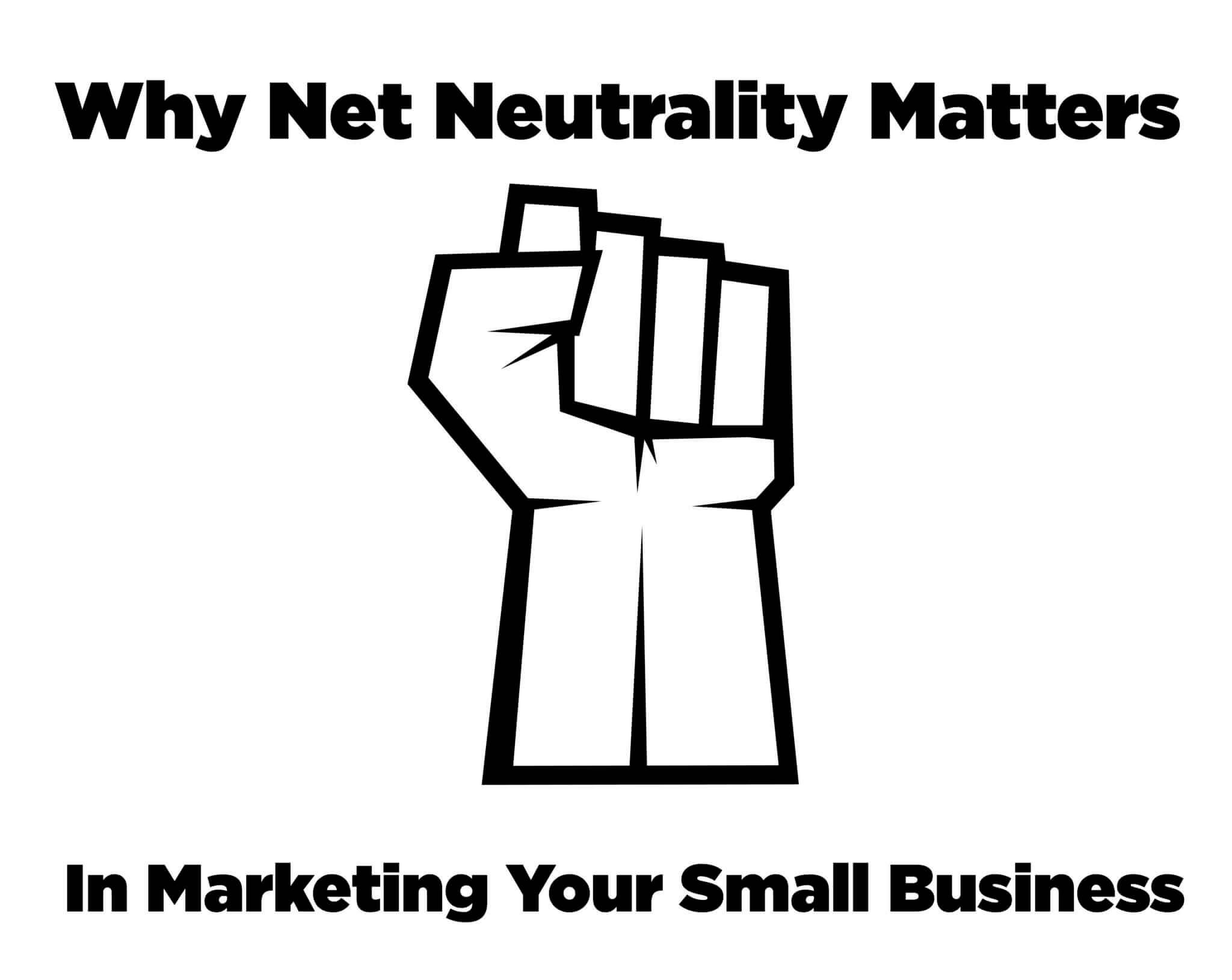
First, let’s talk about what net neutrality is. It’s a hot button issue right now so if you’re still not sure, here’s the breakdown. Net neutrality is the basic idea that any Internet user can have access to the whole of the internet. That the pricing tiers are determined by either speed, or the amount of information you can transfer. (the difference between your home internet vs your cell data)
But, you’re not locked out of websites, or some sites don’t work as quickly based on what you pricing tier you’re on. In a non-neutral web, for a low price you might be able to access your main social media sites, your email, and other highly trafficked websites that can afford to pay to be in that tier; think basic cable. Whereas, to access the entirety of the internet you have to pay for premium. This is what happens when cable companies who are losing subscribers now run the main ISPs and FCC.
How Does This Affect Small Business?
Well, in a non-neutral scenario the companies like Amazon and The New York Times, who want access to the most amount of people will want to pay for the ability to do so. You, an e-commerce startup or small local news outlet probably can’t afford that.
You see, right now the Internet, at least at the Internet Service Provider (ISP) level, is the most democratic place to conduct business. ISP’s cache websites and deliver the content equally, regardless of the company’s size or budget.
Additionally, a small business can put up a website, market it through content, SEO, advertising, and it can grow into a flourishing company. The barrier to entry is much less than it is in the brick and mortar sphere.
So raising that barrier by having pricing tiers in order to get access to more people will only benefit the largest and richest of companies. Remember how in the recession we all talked Main Street vs Wall Street? This is basically the same thing. Verizon, COX, Comcast, and AT&T along with a host of other smaller telecom companies want to use their lobbying power to push an agenda that will hurt small business and the open, democratic Internet.
How Does This Affect Digital Marketing?
In all honesty this stance against the proposed model is a self interested one. A lot of the power that we as SEMs and digital marketers to help our clients would be stripped. The work that we do to grow rankings and increase visitors will be pitted against a pay-to-play model where the power is in the hands of ISPs on content delivery.
Our goal is to help searchers find our customers through ethical means. These same ethical means are available to anyone. The tools are readily available everywhere. Digital marketing and website design is a democratic business. But that would change, and so of course, it’s our job to bring this to the attention of our customers and visitors.
But What Can We Do?
Small business has a lot of power. We as small business employees and owners are a huge portion of our economy, and the workforce as whole. An impact on it, would be an impact on our nation as an economic power.
Speaking to your local representatives is a key step. Today is net neutrality day so there’s a few websites you can visit one is Battle for the Net and the other is Save the Internet. These will give you letters that you can send your congressperson or senator.
The other thing you can do is speak out to your local chambers of commerce and economic development groups. These groups are there to push for small business growth in your local area. Their support can help push the state level economic growth agencies to see that small business already has to compete enough with major corporations, they don’t need one more hurdle.





